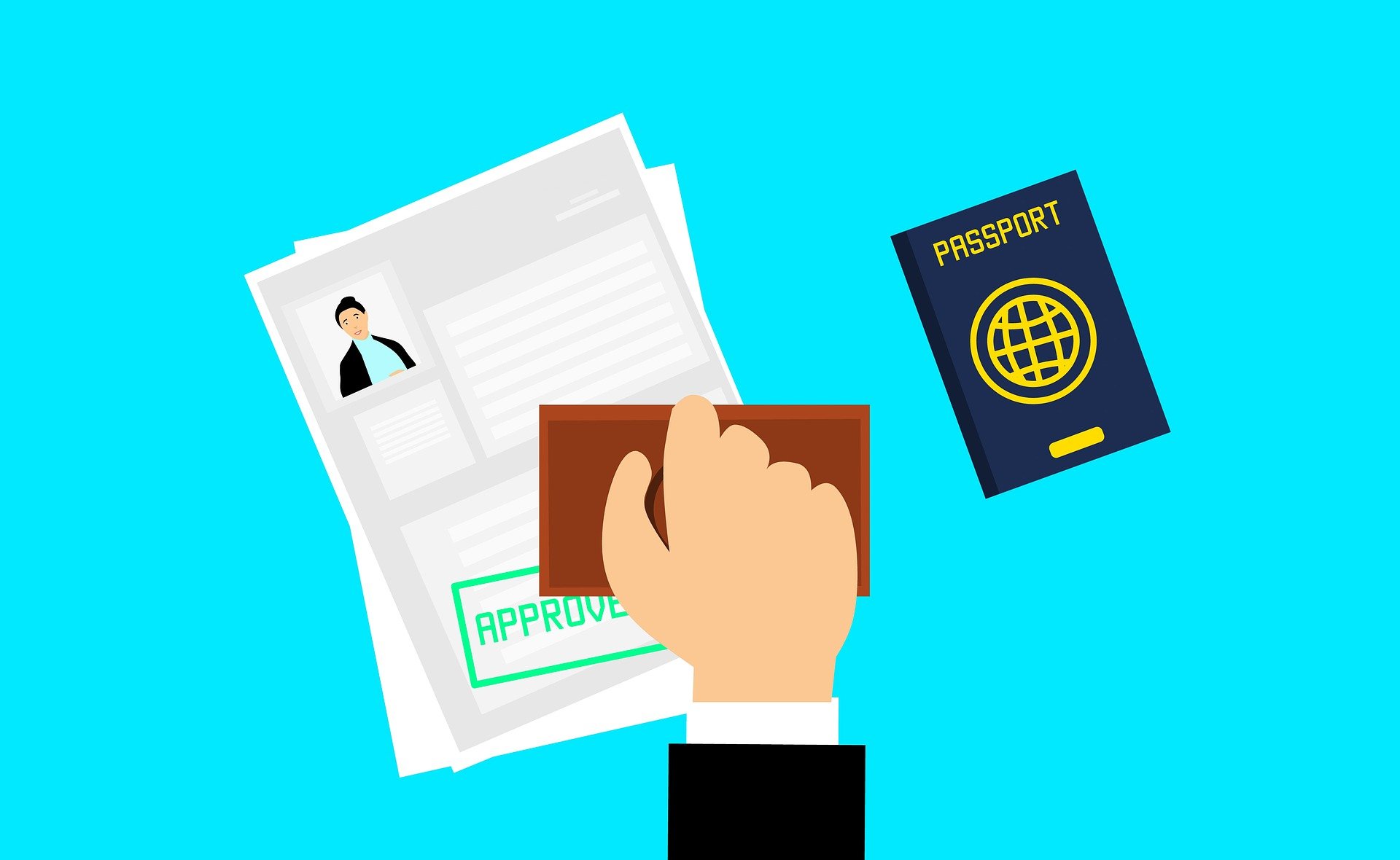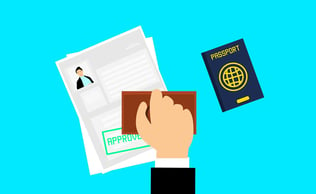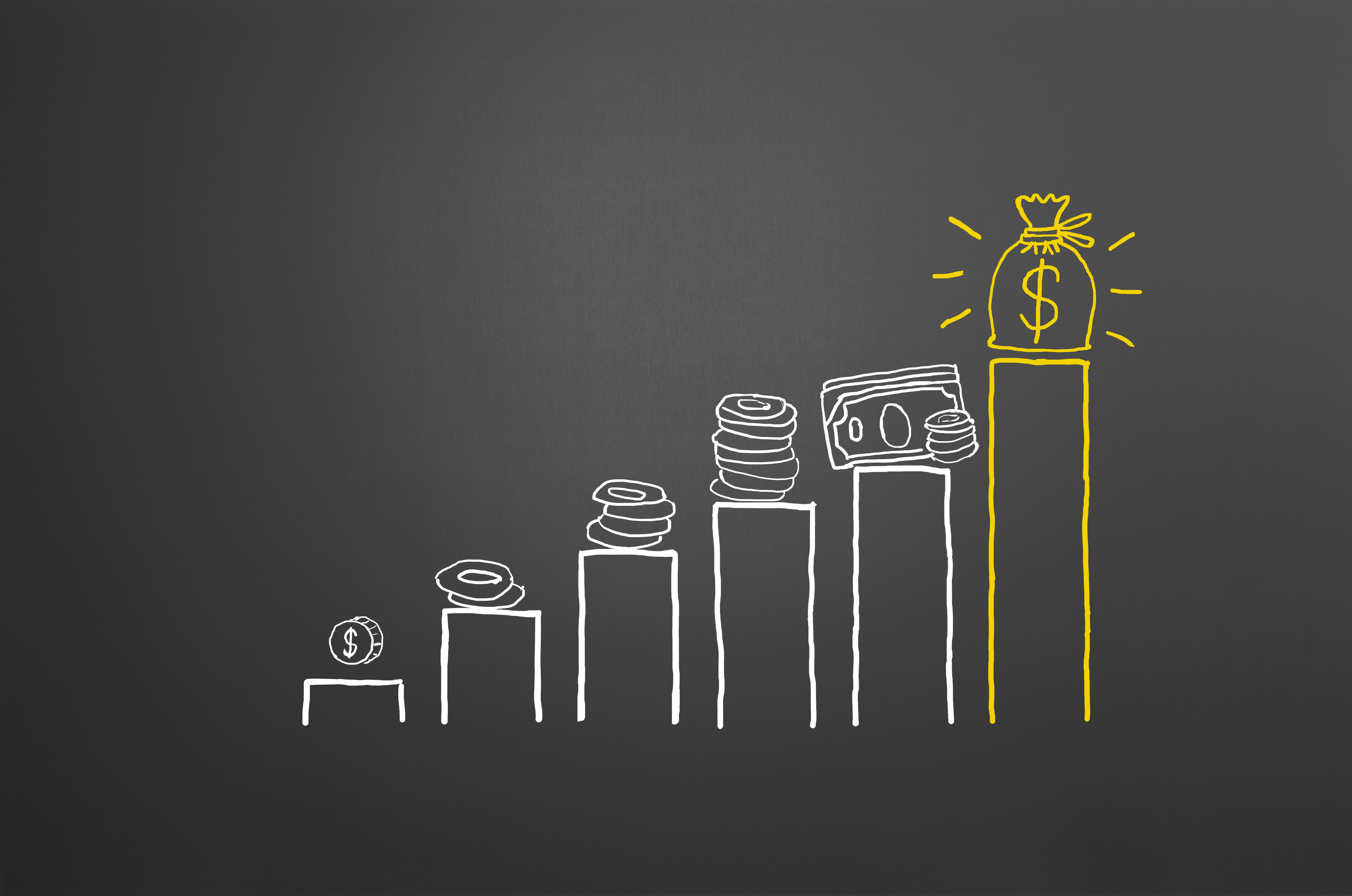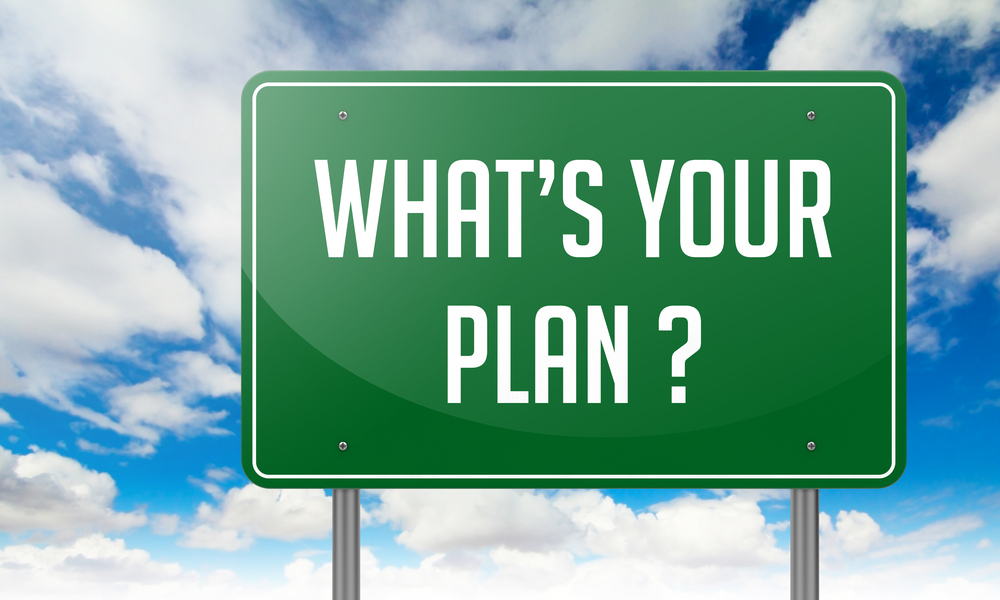The Four Tiers of Financial Stability
We all know what financial instability is like—living paycheck to paycheck, trying to figure out which bills can and can’t be taken care of this...
5 min read
 Chris Gottschalk
:
Jan 28, 2021 5:30:00 AM
Chris Gottschalk
:
Jan 28, 2021 5:30:00 AM

Trying to get financially established in the United States can be confusing in the best of circumstances. If you have immigrated from another country, though, you also have to do it while trying to figure out an entirely new culture.
Fortunately, there are concrete steps all newcomers can take that will help them get started financially in the U.S.A.
The first financial step any newcomer to the United States needs to do is get a social security number. It is your permanent financial identity, and without it getting financially established will be much harder.
If you’re not an American citizen, you’ll have to locate the nearest social security office. When you get there, you’ll have to bring your immigration documentation, including:
 The social security office will have you fill out an application, and after they’ve verified your information, they’ll send you your social security card. While you may have to wait a few weeks for the card to arrive, the service is absolutely free.
The social security office will have you fill out an application, and after they’ve verified your information, they’ll send you your social security card. While you may have to wait a few weeks for the card to arrive, the service is absolutely free.
If you can’t get a social security number, though, you might be able to get an individual taxpayer identification number instead. You’ll have to visit a taxpayer assistance center and provide some identification, such as:
If you have any of those documents, you’ll just have to fill out a form W-7 in the taxpayer assistance center office and turn it in. Again, you’ll have to wait for up to 7 weeks for your individual taxpayer number to arrive.
If you’re having any trouble getting a social security number or individual taxpayer identification number, contact the Intercultural Mutual Assistance Association. They provide support services to newcomers, and they will be happy to help you.
Got your social security number or individual taxpayer identification number? Great! Now it’s time to take the next big step—visit a credit union (or bank) and get a checking and savings account.
Most of the time, you won’t need much money to get started. First Alliance Credit Union, for instance, only requires a $5 deposit.
It’s worth pointing out that United States financial institutions, unlike those in some other countries, are insured. Bank accounts are insured by the Federal Deposit Insurance Corporation (FDIC) up to $250,000, while credit union accounts are insured by the National Credit Share Insurance Fund (NCUSIF) up to the same amount. In other words, if a financial institution loses your money, you will get it back thanks to NCUSIF and FDIC.
As almost everyone is aware, you’ll have to pay for expenses each month that include housing payments, utility bills like electricity, gas, water and garbage collection, grocery bills and transportation costs to get to and from work.
You’re going to want to make sure you can afford all these monthly expenses, and the best way to do that is to create a budget. While some people don’t like the idea of budgeting because it’s too much work or too difficult, the truth is that creating a budget is simple.
First, add up all the money you spend each month. Next, subtract that amount from how much you earn each month. If you have a positive number, you’ve got a surplus.
If you have a negative number, though, you’ll need to figure out what budget items you can cut back on in order to make sure your budget is balanced.
 Since you’re just getting started in this country, your first goal should be making sure you can pay off all your expenses each month. This might not seem like much to you, but one of the cornerstones of financial success is being able to use the money you earn effectively. Being able to balance a budget in a new country is a significant accomplishment.
Since you’re just getting started in this country, your first goal should be making sure you can pay off all your expenses each month. This might not seem like much to you, but one of the cornerstones of financial success is being able to use the money you earn effectively. Being able to balance a budget in a new country is a significant accomplishment.
You should know that very few people’s budgets are exactly balanced. In other words, once you’ve balanced your budget, you’ll probably discover that you have more money in your budget than you need to cover your expenses. This is a good thing, because you can put that money to work for you.
One of the best things about having a checking and savings account is that you can start putting aside money until you need it to get through a crisis. This is known as an emergency fund or a rainy day account.
Financial experts recommend you have at least three months of salary in your emergency account, although having six months of salary is best. However, if you’re just getting started financially in the United States, just put aside a small percentage of your paycheck into savings, like 10%. If your budget is so tight you can’t put aside 10%, put in whatever money you can and do it consistently. After a while saving money will be a habit, and you can start increasing the amount you save.
Having an emergency fund gives you security and a peace of mind that’s hard to match. It’s your safety net in any crisis ranging from unexpected auto repairs to losing your job, and when you don’t have to worry about what you’ll do in the event of an emergency, you can start thinking about the next steps you want to take.
So you have a balanced budget, you’re working on an emergency fund and you might even have a little bit of money left over.
What comes next?
First, take a moment and congratulate yourself. These goals might seem basic, but by accomplishing them you’ve set yourself up for financial success.
While “financial success” may seem like a vague term, all it really means is “achieving your financial goals,” and these financial goals can be anything you want, from buying new dishes to owning your own home.
However, you have to know what your financial goals are first. Otherwise you’ll end up spending money aimlessly and wondering where you spent all your money at the end of the month.
If you’re just getting started setting financial goals, start small. Think about what you’d like to accomplish in the next six months or so. This could be anything from buying winter clothes to sending money to your family in your home country.
Once you have some goals in mind, make them S.M.A.R.T. goals. S.M.A.R.T. is an acronym that means your goal should be:
Once you have these goals in mind, come up with a plan to reach them. It could be as simple as putting aside more money from your paycheck, but you can also start doing research on items you want to buy to figure out the best prices, keep an eye out for sales and make sure you’re getting the most value for your money.
Starting over again can be hard. It’s even harder if you’re starting over again in a new country. However, if you get some of the basics, like a social security number and a banking account, get control over your money with a budget and start saving, you’ll be on your way to financial success.
If you become a member of First Alliance Credit Union today, you can also take advantage of several tools to help you get started financially. Our resource center has a free budget calculator that will help you create a budget, as well a s free downloadable S.M.A.R.T. goals worksheet, and you can keep your money in a traditional savings account with great interest rates. We can even help you send money to family members in another country.

We all know what financial instability is like—living paycheck to paycheck, trying to figure out which bills can and can’t be taken care of this...

Ask almost anyone if they know there’s a difference between saving and investing and they’ll say yes. Ask them if they know what that difference is,...

For most of us, 2020 is a year most of us are only too happy to be done with. It’s been 12 long months of disease, disasters and strife, but 2021 is...